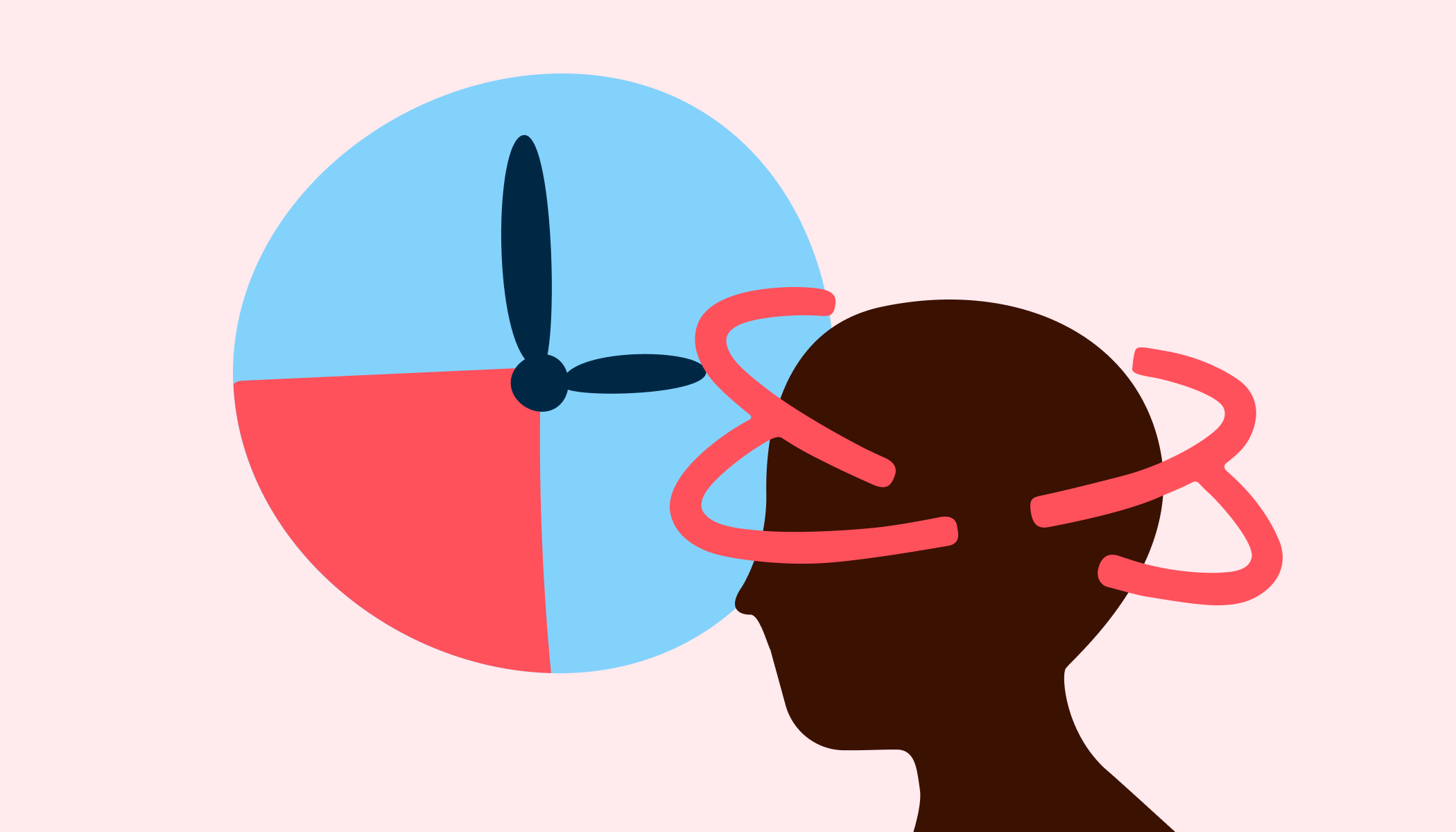Vertigo is the dizzy feeling you get when you feel like you or your surroundings are spinning. It’s a symptom rather than a condition in itself, and there are underlying health problems that can trigger vertigo – from viral infections to migraines.
Sometimes, doctors can’t find an obvious cause for vertigo, which has led them to explore whether stress or anxiety can cause this dizzy feeling. Although we don’t have all the answers yet, we know that finding ways to cope with stress can also ease vertigo.
Can stress cause symptoms of vertigo?
It’s not clear yet whether stress and anxiety can directly cause vertigo, but there seems to be a connection between them. We do know that stress can have a big impact on physical health.
Feeling dizzy or off-balance can be a frightening experience. This anxiety makes your vertigo symptoms feel worse, creating a cycle between feeling stressed and dizzy.
How could stress affect your balance?
If you’ve ever felt stressed or anxious, you probably already know that it can have powerful physical effects. Your body produces more adrenaline and cortisol – hormones that can make your heart pound and your breathing quicken. They can also affect your senses.
Our sense of balance is controlled by the vestibular system, which includes parts of the inner ear, specific areas of the brain and the nerves that connect the two.
Structures inside your ear work like a spirit level and send information to your brain about your body position. The brain combines this with visual cues to decide if you’re balanced or not.
There are three ways that stress could affect your sense of balance:
1. The direct effect of stress hormones
Your stress hormones may change how the nerves in your ears and brain process the signals related to your balance. Activity in your nerve cells is caused by electrically charged molecules moving in and out of cells, and cortisol is known to affect this.
2. Changes in your brain activity
The brain areas responsible for balance and stress are part of the same network. This could be why vertigo shows up more commonly in people with anxiety disorders. The theory here is that activity in one area impacts the other, meaning an episode of vertigo could increase brain signals related to stress and vice versa.
Slower recovery from damage
Another theory is that stress could cause slower recovery from an injury to the vestibular system that controls balance. The vestibular system can be damaged by:
- An inner ear infection
- The effects of ageing
- A mild or severe head injury
- A tumour
- A buildup of fluid in the ear
- A rare condition called Ménière’s disease
In most people, the vestibular system recovers on its own. It’s thought that stress could affect the body’s ability to adapt, causing vertigo symptoms from the injury to last longer.
How to ease stress-related vertigo
The best way to lower your chances of stress-related vertigo is to tackle the underlying problem, which is the stress itself.
Some tell-tale signs that you’re chronically stressed are:
- Having problems sleeping
- Getting headaches
- Difficulty concentrating
- Struggling to make decisions
- Feeling sore and achy
- Getting easily annoyed
- Being more or less hungry than normal
- Drinking or smoking more
There are things you can do to lower stress in your life, like getting more active, but speaking to a doctor or a therapist will help you figure out where to start.
5 tips for coping with vertigo
People who use coping strategies to deal with vertigo have a better chance of their symptoms going away over time, according to new research.
1. Take time out
When dizziness strikes, sit or lie down straight away.
2. Know your triggers
Try to identify the key causes as they happen. For example, it could be loud, busy spaces.
3. Build back up slowly
If certain situations trigger dizziness, try slowly getting used to them rather than avoiding them entirely.
4. Get support
It can help to have people around you who know how to help when you’re feeling dizzy.
5. Remember, it’s unlikely to be forever
Although vertigo is unpleasant, lots of people’s symptoms resolve on their own, and it’s unlikely that anything serious is going on.
When to speak to a doctor about vertigo
Depending on the underlying cause of your vertigo, there may be treatments available. It’s worth speaking to a doctor to figure out what’s going on.
Seek urgent medical advice if you have vertigo and:
- A severe headache
- A fever
- Are being sick or feel very sick
This article has been medically reviewed by Dr Bryony Henderson, Livi Lead GP.


